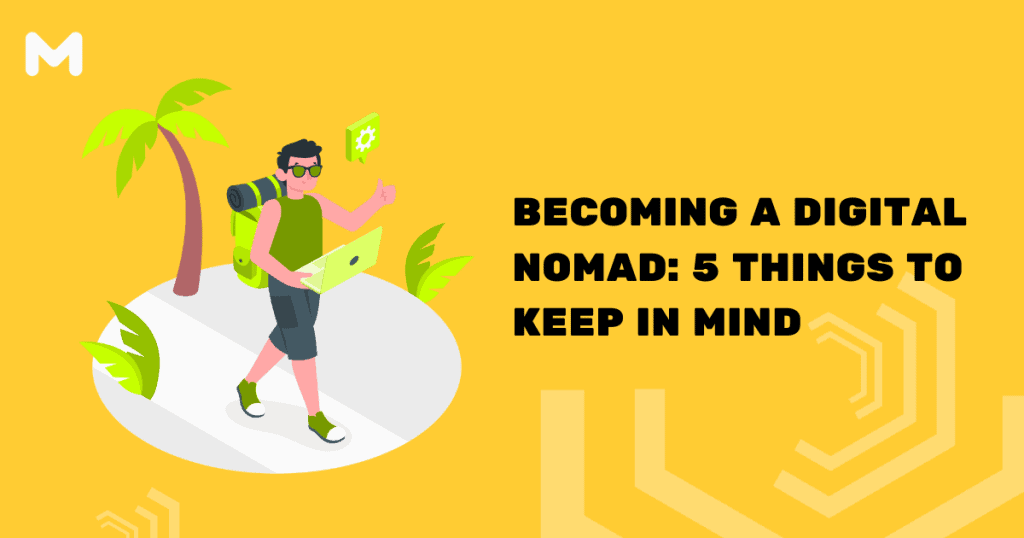Let’s face it: digital nomadism is a new trend. With more and more people considering going nomad, the question is: what does it take to be successful?
First of all, if you’re considering remote work, now is the time. With the pandemic changing rules of the game, possibilities are abundant. To top it off, an increasing number of countries are offering or planning to start offering special digital nomad visas in an attempt to boost their pandemic-ridden economies.
Back to the first question: how to become a successful digital nomad?
The simple answer is: be prepared and resourceful. The rest is planning. Let’s see how to get started.
1. Gather the Necessary Documentation
Paperwork is that aspect of any change that bears the title “the most cumbersome.” No matter how troublesome, it is still necessary and should be the first step to undertake.
First of all, gather all the documentation you need for the visa. Next on, gather all documentation you may need as an expat. On top of that, it is also advisable to make copies and keep them with a friend or family member back home. You never know what may happen in the future, and getting the missing document once you’re abroad can be downright impossible.
Don’t forget to check your passport validity and renew the passport if it is less than one year.
Finally, obtain an International Driving License if you’re planning to use a car abroad.
2. Mind the Taxes
Taxes are that one troublesome detail many digital nomads have difficulties coping with, especially if they’re traveling all the time. As regards to the countries you’re traveling to, the general rule of thumb is that if you stay less than three months in a country, taxes may not apply to you. However, if you’re planning to become an expat, you’ll need to plan your tax calendar carefully, and know exactly which forms to file.
Don’t forget that U.S. citizens have to pay annual income tax returns in the U.S., in the following cases:
- If you lived in the state for any duration during the tax year
- If your immediate family lives in the state while you’re abroad
- If you have a permanent place of residence in the state
- If you keep your voting rights, ID card or driver’s license in the state
As regards the income state tax, if you’re earning income in the state (including pension, retirement income and other government benefits, you’ll need to pay them as well. Only a handful of states don’t levy state income taxes, as follows: Alaska, Florida, Nevada, South Dakota, Texas, Washington State and Wyoming.
There are some ways to alleviate income taxes while working abroad, notably the Foreign Earned Income Exclusion, Foreign Housing Exclusion and Foreign Tax Credit.
And it can’t be avoided – there are expat taxes to keep in mind. Different countries have different taxation systems, but if you stay more than 3 – 6 months in the country in most cases, you’ll have to pay taxes. This is practiced in residential taxation countries such as Australia, China, Japan and Mexico. Other countries, such as Costa Rica, Hong Kong and Singapore impose tax only on income earned in their jurisdiction.
You’ll also need to think about property taxes back home. Whether you are a first-time homebuyer or have owned any other real estate, you’ll still be responsible for those taxes — no matter where in the world you currently reside.
3. Stay Tech-Savvy
Digital nomads simply have to stay on top of digital innovations at all times, as their jobs depend on it. The tools that digital nomads are certain to need include project management tools, workflow automation tools, and all of the best employee apps. Staying up-to-date ensures they remain competitive in an ever-evolving digital landscape, allowing them to deliver high-quality work regardless of their physical location. Additionally, digital nomads often face the challenge of choosing the right collaboration model, such as weighing the benefits of working under a freelancer vs digital agency design structure for specific projects. By mastering the latest tools and strategies, they can effortlessly adapt to different workflows and maintain seamless communication with their clients and teams across the globe.
While trends change regularly, it is recommended to familiarize yourself with Asana, Slack, Trello, Zoom and Skype, which are currently the most frequently used tools worldwide.
4. Consider Getting a Health Insurance Policy
U.S. residents won’t have health coverage in the EU, unlike EU citizens. The same applies to the majority of other countries, as countries offering the same benefits to foreigners as to locals are rare.
It’s recommended, therefore, to look into health insurance policies before setting off. Many insurance companies are taking digital nomadism into account and coming up with flexible policies to meet the demand.
Finally, don’t forget to undergo any health treatments back at home. Injury recovery can be more difficult when you’re away from home and traveling.
5. Keep Learning
As mentioned above, digital nomads are lifelong learners. Given that these people have international competition, staying resourceful is a top priority.
Needless to say, with eLearning and mLearning breaking all physical boundaries, continual learning is nowadays available to everyone everywhere. Consider upgrading your knowledge to remain competitive. And while you’re on the go, you’ll see how adult learning can help you achieve your goals.
Additionally, many digital nomads reverse the roles and are also taking the opportunity to teach online. It is yet another job that can easily be done on the go!
Conclusion
Digital nomadism is as exciting as it gets, but you do need to plan ahead, gather all documentation (and make copies), think about health insurance and taxes, and learn how to get a remote job. For the majority of remote workers, these are all logical steps, and they are fully aware of the possibilities and the conditions.
Digital nomadism gives you the choice to live a life you’ll enjoy, so it’s definitely worth the effort. Set your OKRs, look to the future, and stay open to every possibility that comes your way!


